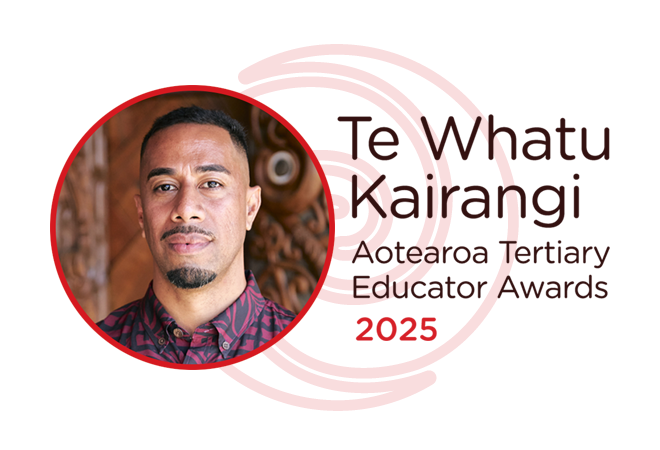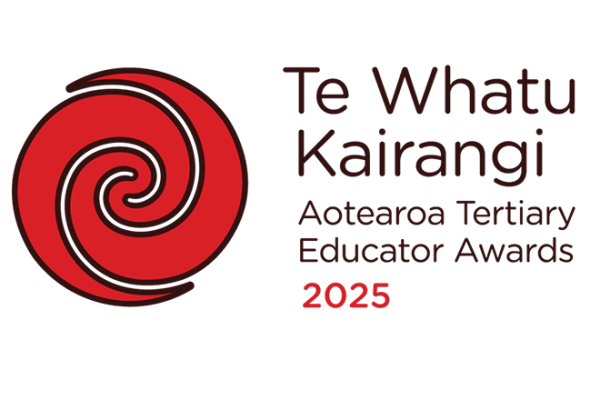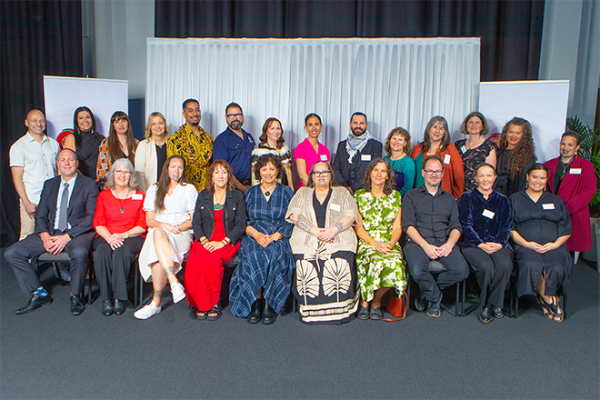Lefaoali’i Associate Professor Dion Enari
Dion has high expectations of his Pacific learners and he reminds them of their position in making their communities a better place
Le Moana Mua Award winner
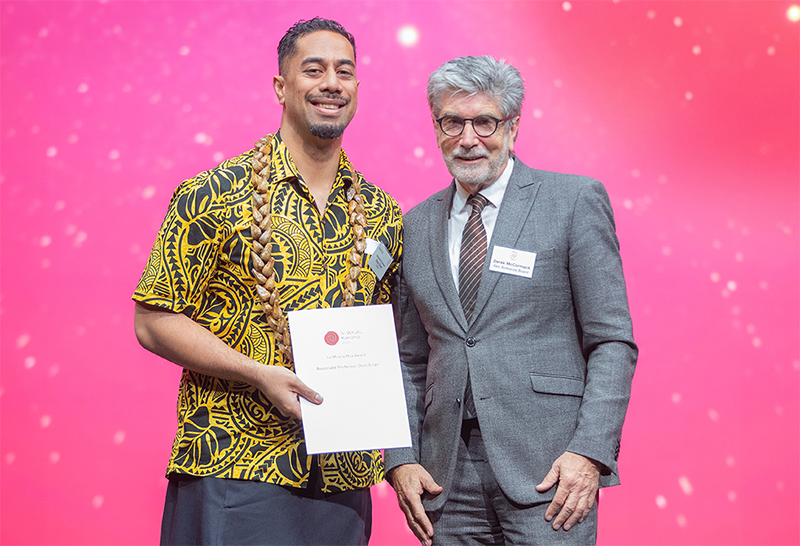
Ngā Wai a Te Tūī (Māori and Indigenous Research Centre) and School of Healthcare and Social Practice, Unitec
"Another Pacific person graduating is another victory for our people."
Once classifying himself as a high school failure, Dr Dion Enari is now the first Pasifika Associate Professor at Unitec. His teaching, research and media commentary has helped lead impressive educational change for his people. As a Pacific educator, he knows his role is crucial in nurturing and pushing his students toward academic success. He considers it a privilege to have taught hundreds of students, helping to build the next generation of “articulate and fearless contributors to society”. His educational philosophy is holistically learner-centric, with a special interest in the needs of Pacific learners, privileging their cultural capital as a carrier, not a barrier, to academic success. He reminds all of his students that their cultural knowledge is their competitive advantage in mainstream society.
Dion is a New Zealand-born Samoan who was raised in Australia, and has lived in Samoa. He was a lecturer/tutor at University of Queensland and Queensland University of Technology between 2017-2019 and a Senior Lecturer in the School of Sport and Recreation at Auckland University of Technology (AUT) from 2021-2025. He is currently an Associate Professor at Unitec teaching in their Master of Applied Practice and this year became the first and only Associate Professor of Pacific heritage at Unitec. His teaching and learning approach aligns with the Unitec Pacific strategy goals: increase Pacific student success, completion and participation rates; grow Unitec staff capability and capacity to empower and support Pacific students; grow Pacific knowledge and awareness in learning, teaching and research, and develop and maintain partnerships with Pacific communities and stakeholders.
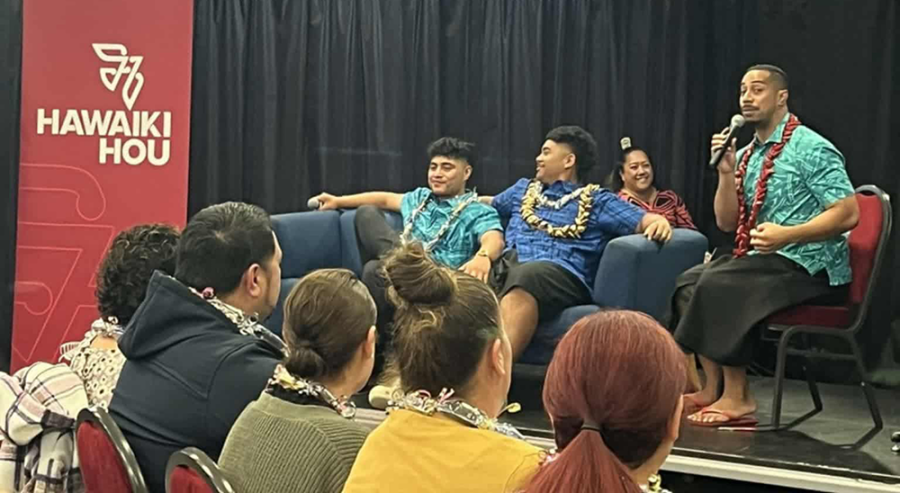
Dion has redesigned all his courses to include Indigenous models and perspectives. For example, within his Sport Development paper he adjusted content delivery to ensure that indigenous theory (particularly Māori models and Te Tiriti o Waitangi, Pasifika models) was embedded throughout the course to create a whakawhanaungatanga learning environment for the students. This positioning invites Māori and Pacific students to bring their cultural knowledge to class, whilst also providing a safe environment for other students to learn Indigenous ways and share their lived experiences. Similarly, in his postgraduate course Pacific Health Research and Design, content was redesigned to include Decolonising and Indigenising Health for Pacific people and the importance of Pacific research methodologies.
As the only Pacific academic teaching staff in the School of Sport and Recreation AUT, and with Pacific students being the second biggest cohort, Dion’s workload was exacerbated. He became the Pacific member on the school’s board of studies, where he was able to advocate for Pacific student needs. In his leadership roles, he supported staff through professional development and was responsible for curriculum development to satisfy industry, community, professional, and student needs. Dion also addressed deficit-framing of Pacific learners by advocating for the inclusion of their cultural capital and the power of their bilingualism and multilinguilism. He was also Co-Chair of the Moanaroa AUT Pacific Research Network, which is one of the highest priority research networks at AUT and sits across the whole University. In this role he was able to advocate for Pacific teaching pedagogy to be implemented in a way that uplifts Pacific students and is not overburdensome on Pacific staff. He was also able to assist Pacific educators in getting their theories and frameworks published in academic journals and implemented nationally and internationally.
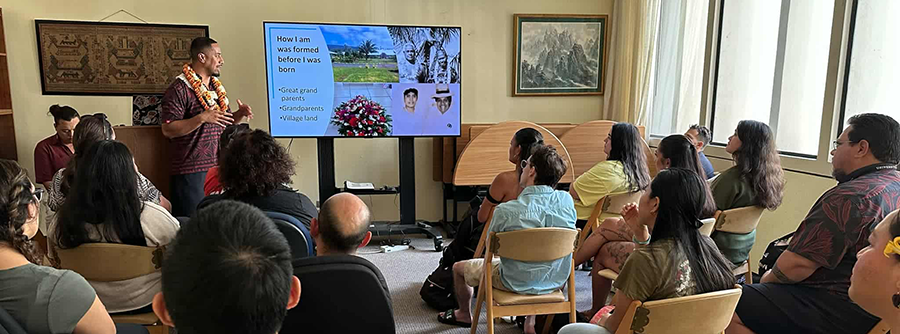
Throughout his teaching Dion has adapted his practice to meet the needs of his students. He constantly takes on student feedback and makes his lectures responsive to the diversity of his student cohort. When he found some Pacific students preferred group discussions to individual problem-solving in class, he adjusted lessons to allow for more collective discussions. This peer learning gave his Pacific students autonomy on how they learned, fostering a culture which enabled them to do well on the course and, more importantly, to become lifelong learners. When students appreciated his using Samoan phrases throughout class, he added more, including their English translations. This resulted in several students, who hadn’t previously attended lectures, attaining 100% attendance in his classes.
As a Samoan man who knows his genealogical links through the islands of Samoa and throughout the Pacific, Dion gets to know his Pacific students from this positionality of familial, ancestral, and Pacific linkage. On his students’ first day, he asks them to speak of their ancestral linkages and what they wish to draw from their cultural backgrounds in his class. He draws out and nurtures their prior knowledge and invites them to bring their rich lived experiences into the classroom. When Dion acknowledges that he speaks Samoan, conversational Māori, and has a basic understanding of other Pacific languages, he is given a deeper access and understanding of Pacific students that cannot be gained by a non-Pacific educator. This enables him to encourage and reward the knowledge students have in their languages; empowering their identity and reinforcing the concept that their cultural knowledge is academic knowledge.
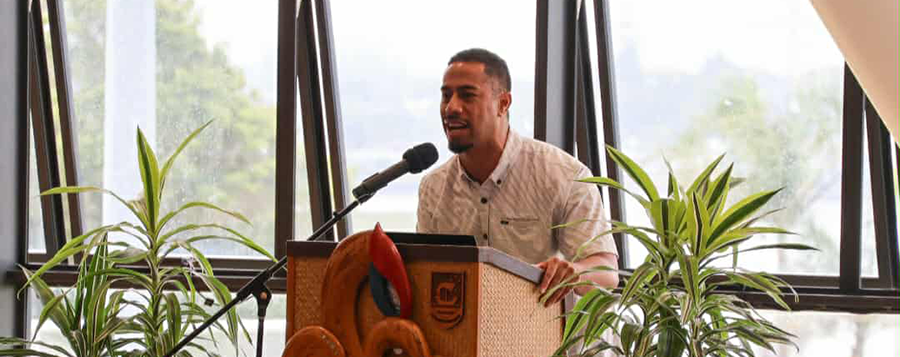
Dion has been a keynote speaker at many events and is regularly invited to provide workshops to educators around the world on how to better know their Pacific and Indigenous students. As well as ensuring that Pacific methods of learning and the genealogical knowledge systems of Pacific students are upheld and further strengthened, it also gives non-Pacific students access to Pacific knowledge. As a Pacific researcher, Dion has created his own education methods via academic publications, speeches and professional development workshops. These have been implemented in curricula around the world for both Pacific and non-Pacific education networks. In class, Dion ensures Pacific students are confident in who they are, and that non-Pacific students feel safe and understand the importance of Pacific methods.
As a community role model, Dion has high expectations of his Pacific learners and he reminds them of their position in making their communities a better place. By having the students reflect on their position within society along with community groups and industry, students realise that they are the authors of the future. Dion ensures he bridges connections between Pacific learners and their community, church, motherland, families, other Pacific educators, ally non-Pacific educators and Pacific pioneers across sectors.
“I don’t just want my students to do well. I want them to do better than me and set the bar higher than I ever could.”
